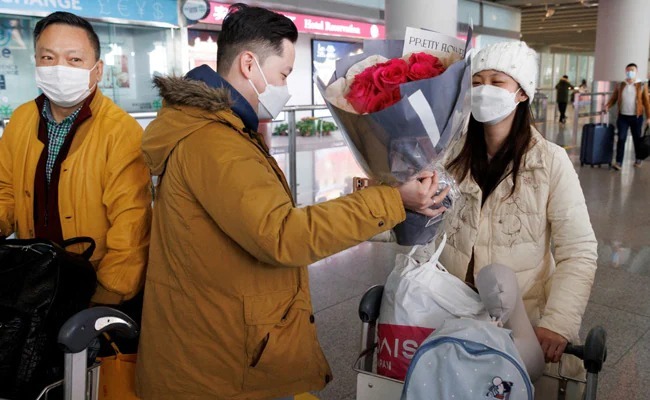| Translate This News In |
|---|
After Beijing lifted pandemic border controls in the latest loosening of restrictions that has allowed the virus to spread among its 1.4 billion people, China prepared for a “new phase” in its fight against COVID-19 on Monday, and financial markets rose.
One of the final phases of China’s “zero-COVID” regime’s dismantling was to reopen on Sunday. This process started last month following historic protests against restrictions that had kept the virus at bay for three years but had caused widespread mental suffering and serious harm to the second-largest economy in the world.
Beijing’s decision to lift the quarantine is anticipated to increase travel abroad, but numerous countries are requiring travellers from China to submit to negative testing in an effort to stem an outbreak that is overtaxing many of the country’s hospitals and cemeteries.
The People’s Daily, the Communist Party’s official newspaper, praised the government’s anti-virus initiatives in an editorial published late on Sunday, declaring that they had advanced from “preventing infection” to “preventing severe disease” and that “life is moving forward again!”
We are stronger than the virus today.
The evolution of the pandemic, increased vaccination rates, and China’s experience in virus prevention were all cited by the official Xinhua news agency as reasons why the nation has entered a “new phase” of its COVID response.
Leading health officials in China have frequently stated that COVID infections are reaching a peak nationwide and that the disease is now not a serious concern to the country.
As China managed the virus as a “Category A” epidemic like the bubonic plague and cholera, the former regime of stringent quarantines and lockdowns was in stark contrast. Despite the fact that numerous limits have been removed for weeks, China’s management of COVID was formally demoted to “Category B” on Sunday.
China has one of the lowest COVID infection-related mortality rates in the world, with only 5,272 deaths recorded there as of January 8.
But according to the World Health Organization, China is understating the size of the outbreak, and experts predict that more than a million Chinese could pass away from the illness this year.
Investors are banking that China’s reopening would help revitalise the $17 trillion economy and improve the prospects for global growth, despite those pessimistic predictions.
The Chinese yuan strengthened to its greatest level against the dollar since mid-August on Monday as a result of these prospects, sending Asian shares to a five-month high. While Hong Kong shares rose 1.4%, Chinese blue chips increased by 0.4%.
SUPERB RELIEF
Michael Harrold, 61, a copy editor in Beijing told Reuters on Sunday at Beijing Capital International Airport after he arrived on a trip from Warsaw, “It’s a big relief simply to be able to get back to normal… just come back to China, get off the plane, grab myself a taxi and just go home.”
When Harrold left for a Christmas vacation in Europe in early December, he said that he had been prepared to return to quarantine and undergo multiple rounds of testing.
On Sunday, the Chinese state-run television network CCTV claimed that all direct flights from South Korea to China were nearly sold out. On the Chinese social media platform Weibo, the report immediately became the most read post.
Nevertheless, a rise in demand from South Koreans, who make up the majority of foreign residents in China, as well as from other travellers, will be constrained by the constrained number of flights to and from China, which are now at a small fraction of pre-COVID levels.
Due to Seoul’s wariness of Chinese tourists, Korean Air announced earlier this month that it was stopping a plan to boost flights to China. A lot of nations, including South Korea, now demand that travellers from China, Macau, and Hong Kong present negative COVID test results prior to departure.
According to Flight Master data, China had a total of 245 foreign flights on Sunday, including inbound and outbound flights, compared to 2,546 flights on the same day in 2019. This represents a 91% decrease.
While the amount of inbound and outward travel is anticipated to rebound to just 30-40% of pre-COVID levels this year, China’s domestic tourist revenue is projected to recover to 70-75% of pre-COVID levels in 2023, according to China News on Sunday.


















